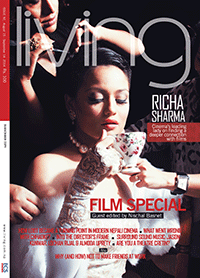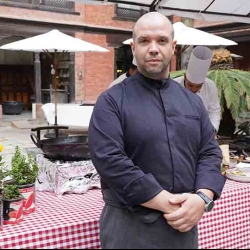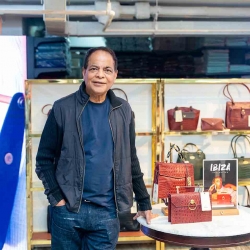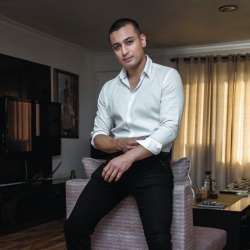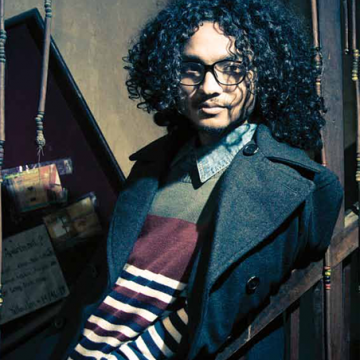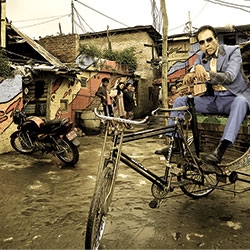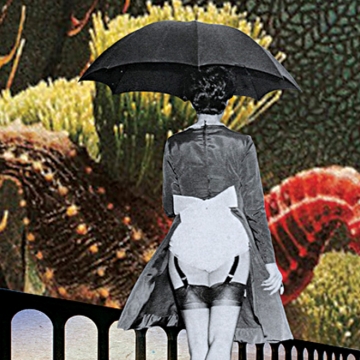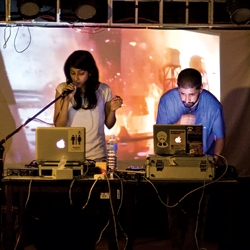The Ottoman Capital
Istanbul is the mixture of history and modernity. Like Kathmandu, the city is quickly developing itself as the hub for economics, culture and art trying to incorporate old buildings and new culture. But unlike Kathmandu, Istanbul is not the capital and is a transcontinental city, straddling the Bosphorus—one of the world's busiest waterways—in northwestern Turkey, between the Sea of Marmara and the Black Sea. Its commercial and historical center lies in Europe, while a third of its population lives in Asia. There are many places to see in Istanbul like Grand Bazaar which will surely charm you with its bright and pleasant environment and Hagia Sophia which will wrap you tightly with a sense of peace and security. On the other hand, tour of the pearl of the Bosporus, Ortaköy, will let you enjoy the lovely views along the deep blue coast. Whether you take a stroll around the city or poke around any of the 39 districts nearby, the city that bridges the east and west both physically and culturally will surely leave you in awe.
Museums and historical sites
Turkey is full of museums and historical sites dedicated to history and culture of the country as well as art and architecture. Why? Because like Nepal, this country was once ruled under various regimes. While we had Kirat and Lichhavi Period, Turkey had Hittite, Lydian and Persian Empire. Ottoman Empire was the last empire before Turkey became republic in the aftermath of World War I.
Istanbul itself has more than forty museums and historical sites. Museums and historical sites offer an insight to the history of the country that has seen ancient empires like Roman and Ottoman. Museums also offer wonderful light upon the old and modern art of the country. Turkey has more than 151 private museums that offer delightful collection of Turkish culture and art. The government has provided the services of Museum passes for the tourists and the locals as well as e-ticketing. There are around eleven heritage sites that have been listed as UNESCO’s Heritage list while 41 nominated properties have been selected for the tentative list.
Cuisine
Turks are passionate about food; the Turkish cuisine is famous in the world for its diversity and flavor including the inherited Ottoman cuisines, each reason boasting of its own speciality. Like Nepali cuisines, Turkish food has been closely entwined with the fabric of society, whether they are home cooked meals or symbolic religious or celebratory feasts or the street theatrics of roadside sellers. Fresh, local ingredients and seasonal produce are at the heart of its cooking culture. At the same time, eating out is also very much a Turkish culture. With a huge collection of regional varieties, styles and locations, from gourmet restaurants and Bosphorus-side cafes in the heart of Istanbul to charming coastal fish restaurants, traditional Turkish kebap (similar to our Kabab) and lokantas where homemade dishes are the order of the day, Turkey is next to a food-lover's paradise for all tastes and budgets. But if you are looking for more fun, enroll into one of the cooking classes while still on vacation.
Alternate Options
If you’re not the regular tourist kind, then Turkey also provides alternate options to explore the country. Turkey provides various gaming and adventure sports opportunity for young people, some may even remind you of Nepal including paragliding, mountain biking, cycling and hiking while scuba diving, skiing, hunting is also on the offer.
It also sees various youth camps taking place all around the year. Similarly, another great way to explore Turkey's culture is through its music. The big cities of the country, like here in Nepal, attract both well-known and up-and-coming musicians, DJs and performers from around the world and music festivals are now a popular feature of the summer months, ranging from hard rock and classical to electronic and jazz. Traditional music is also very popular in Turkey, ranging from Anatolian folk music to Turkish style classical music to lively, Balkan-influenced fasil music, and experiencing it live is the most enjoyable way to hear it.
Visa Requirements
Before applying for a travel visa, a valid passport with at least 6 month validity from the date of travel is required along with a ‘No Objection Certificate’ from your workplace or school if you are a student. Do remember that your visa will not be processed unless you provide a ticket with return confirmed along with the confirmation for your hotel bookings. 2 recent passport size colour photographs with your face covering atleast 60% should be included with your visa application. A personal bank statement with a minimum balance of Rs 80,000 (for last 6 months prior to the application date) is required. A visa processing fee of Rs 15,000 per person will be charged.






